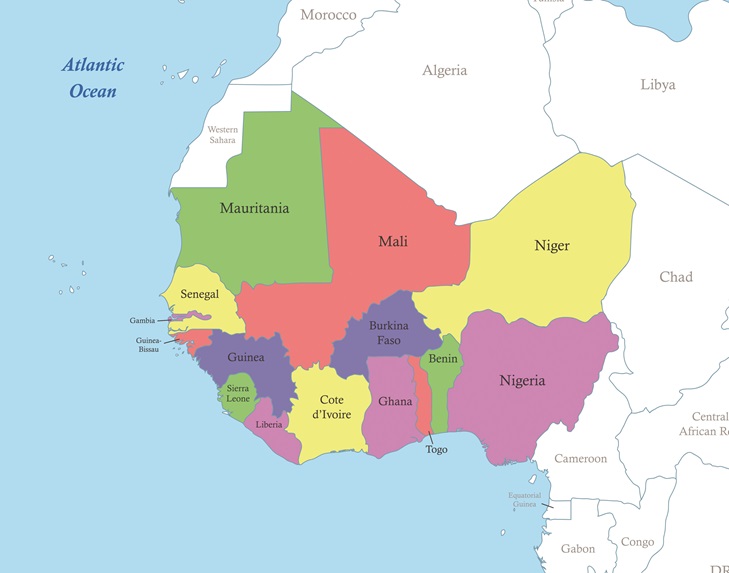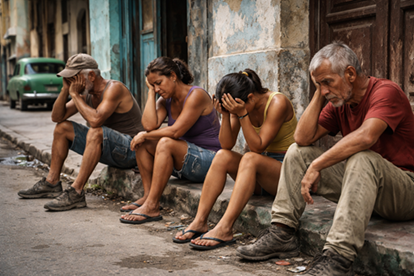
To paraphrase Mark Twain, rumours of the death of African liberation are greatly exaggerated. Following an upsurge in the aftermath of WW2 and decolonization, a surge which saw almost every African colony of Europe experience some form of armed struggle, no matter how small, and the eventual liberation of these colonies, the liberation movements hit a snag. Some leaders lost elections, but in the main, most were assassinated or were overthrown by military coups instigated by former colonial powers. After a 30-year run, the movement for African liberation seemed to have hit a snag in the 90s.
Gone were the days of leaders who sought to unify the continent, utilise its resources to uplift the people, and see the back of imperialism and the powers who had underdeveloped the continent. In their stead were comprador leaders — leaders who sought to destroy the liberation projects and instead create environments friendly to the foreign capitalist powers who drain the countries of wealth, leaving the people in abject poverty and seeking ways to leave their countries, often times finding their way to the imperial core countries.
This surrender to imperialism was acutely seen in the Sahel nations Mali, Burkina Faso, and Niger, three former French colonies that at one time each had flirted with the idea of national liberation. These countries had French puppet governments, were dominated by French capital, and were dependent on the French army for assistance in their failing struggle against jihadists.
In a few years of each other, each one of those countries experienced something which had not been seen on the African continent since at least the 80s. They experienced coups, but not the ones sanctioned by the imperialist powers; rather, they launched captains’ and colonels’ coups akin to Gaddafi in Libya, Sankara in Burkina Faso, or Nasser in Egypt. Rather than being reactionary coups, these were coups of liberation, and just as with the other moves of national liberation, the benefits accrued to the people have been almost immediate and immense.
In all three countries, the growth rate is projected to be anywhere between 4.2 per cent (Burkina Faso) to 6.3 per cent (Niger). These are rates of growth which outstrip regional and continental powerhouse Nigeria. To put it another way, the rate of growth experienced now, following the nationalist coups, outstrips the rate of growth experienced before COVID. They have brought economic independence to their countries as well, as they have all swiftly moved to nationalise their mineral sectors while also promoting indigenous material in clothing and food in what has so far been a successful effort to break with French economic dominance.
All three governments have also moved to expel the French military garrisons stationed in their countries. For the first time in decades, these countries can say that they are not occupied by foreign forces and now have the ability to do open nationalist projects with less fear of intervention by their former colonial masters. This has also given them the ability to tackle the jihadists threatening them. It should be noted that these countries have had more success in targeting these terrorists ever since the French forces left, which has led to speculation that the French may have been using the Jihadists as a reason to occupy the country.
In keeping with the long tradition of pan-Africanism, which has been the lifeblood of these nationalist movements, the revolutionary governments have moved to break away from the neo-colonial creature that is ECOWAS and have formed their own alliance, the Alliance of Sahel States. This has begun as a military alliance, allowing each country to share intelligence, training, and tactics between themselves. The alliance also allows for them to enter each other’s territories as they continue to fight against the terrorists in their countries.
The alliance has plans to, in the future, become an economic alliance, and has already attracted interest from other regional countries and has been expanded to include Mauritania and Chad in a group called the G5 Sahel.
In a testament to the good work that these revolutions have accomplished, they have weathered coups sponsored by former colonial power France as well as the open hostility of the United States and its AFRICOM, whose top general has called openly for the removal of the leader of Burkina Faso’s revolution, Ibrahim Traore. The fact that they have been acting and calling for the removal of these governments is a testament to the fact that these movements, while maybe not everyone’s cup of tea, are independent, represent the people and are not beholden to imperial powers, both old and new.
As we take the time to remember Marcus Garvey, his impact, and his accomplishments, we must never forget that he was a proponent of a liberated and united Africa. The Alliance of Sahel States is just such a project, and it is incumbent on anyone who calls themselves a black nationalist, pan-Africanist, or Garveyite to give their support to those movements. In a continent littered with compradors, we are witnessing independence, and the fragile flower must be protected.
As stated above, we must protect them even if we do not think they conform 100 per cent to our fantasies and hopes. We must be like Garvey, who, while critical and even scathing in his assessment of Ethiopian monarch Haile Selassie, nonetheless supported him and recognised him as a beacon of African independence and liberation.
African liberation is alive and well, and while its success across the continent is not imminent, it is closer than we think. In Kenya, we see people rising against the repressive duopoly and demanding economic independence. In Ghana, recent elections saw the removal of a US puppet and his being replaced with a president who seeks to carve a more independent path for the country.
The path for African liberation at the moment runs through the Sahel, and we must acknowledge this. True, there is a barrage of propaganda promoting Captain Traore, much of it nonsense, but that should not blind our eyes to the real successes being achieved there, such as the reduction in poverty, improvement of medical services, promoting indigenous manufacturing, and infrastructure development. These are real results and the fruits of true independence, and they must be celebrated. More is to be done, and the road will be a rough one, but if it is to have legs, it must be supported, and we should extend our support.



